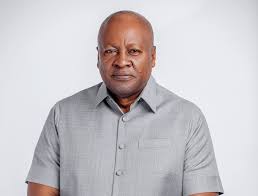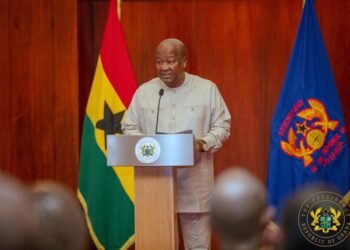The Ghana Cocoa Board (COCOBOD) has attributed the persistent debt challenges confronting the sector to reckless financial decisions taken by the previous New Patriotic Party (NPP) administration.
According to Sam Jerome, Head of Public Affairs at COCOBOD, policy missteps including awarding contracts in dollars, unnecessary procurement of supplies, and delayed payments have collectively contributed to the debt escalation currently burdening the board.
“When President Mahama was in power, that was before the 2016 election, what we were doing was we were issuing or awarding contracts in cedis”
Sam Jerome, Head of Public Affairs at COCOBOD
Mr. Jerome pointed to the shift in the currency of contract awards as a critical source of financial strain, explaining that the decision by the NPP administration to move from awarding contracts in cedis to doing so in dollars led to considerable debt exposure.

“It automatically shores up your debts because of the exchange rate differences,” he said.
According to Mr. Jerome, issuing large-scale contracts without available resources also played a significant role in compounding the financial crisis. He described the practice as economically irresponsible and unsustainable.
“If you don’t even have the resources or the money to undertake a project like road construction, what is the logic behind awarding a contract of that magnitude?
“If the person raises certificates – that is IPC (Interim Payment Certificate) – and demands payment, you have to pay them. The law states that after a certain period, the person needs to be paid. If you don’t pay, then the debt begins and keeps on accumulating”
Sam Jerome, Head of Public Affairs at COCOBOD
He further clarified that such delays do not only swell the amount owed but also attract interest charges, exacerbating the board’s indebtedness. “All these policies by the previous administration accounted for the kind of debts that we are experiencing today,” he emphasized.

Overstocking and Procurement
Mr. Jerome also addressed procurement mismanagement under the previous government, highlighting the over-purchase of non-essential materials like jute sacks.
He argued that the board already had a three-year surplus, making additional purchases unnecessary and fiscally irresponsible. He was particularly baffled at the reasoning behind this decision, especially when the Board could easily “place an order,” for more sacks anytime it was in need.
Mr. Jerome insisted that this kind of unnecessary expenditure only put further pressure on the board’s financial capacity, stating that such practices compromised the institution’s ability to meet real needs.
In addition to the procurement irregularities and poor contract structuring, COCOBOD also faced liabilities to suppliers of fertilizers and agrochemicals. Mr. Jerome disclosed that many of these suppliers are now owed considerable amounts.
He also mentioned cases where some of these suppliers had made dollar-based purchases on behalf of the board.

“If you commissioned people to do all this work on your behalf, at least pay them,” he stressed, complaining that the consistent failure to make timely payments to these suppliers only compounded the board’s financial troubles and undermined stakeholder confidence in the institution.
Mr. Jerome’s remarks come at a time when the cocoa sector remains under intense public and policy scrutiny, with questions surrounding how Ghana’s most vital cash crop industry could accumulate such massive debts.
With President John Dramani Mahama now in office, stakeholders are watching closely to see whether the new administration will adopt measures to clean up COCOBOD’s finances and restore sustainability to the cocoa economy.
READ MORE: Non-Oil Sector Emerges as Ghana’s Secret Weapon for Long-Term Stability



















